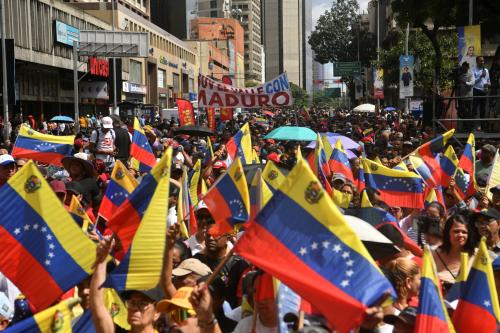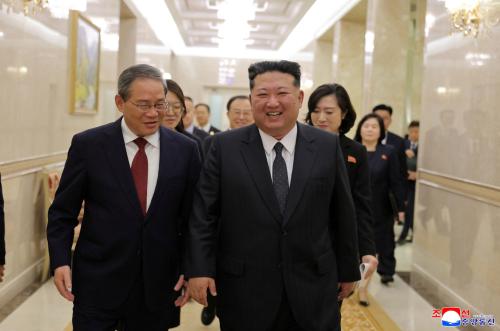

2:30 pm EST - 4:00 pm EST
Past Event
2:30 pm - 4:00 pm EST
1775 Massachusetts Avenue N.W.
Washington, DC
20036
North Korea’s continuous provocations have raised important questions about the efficacy of international sanctions: Do sanctions intended to reduce or halt weapons of mass destruction procurement work, and if not, why? What, if any, unintended consequences—positive or negative—do sanctions against North Korea (DPRK) generate? What can be done to improve the effectiveness of these and other sanctions? In their recent report, Jim Walsh and John Park address these specific questions with a primary objective to document North Korea’s practices, partners, and pathways in order to better understand how the DPRK has innovated in the face of international sanctions.
On November 7, the Center for East Asia Policy Studies at Brookings hosted John Park and Jim Walsh as they presented key findings from their three-year MacArthur Foundation-funded study of what they call “North Korea, Inc.,” the system of regime-operated state trading companies that the DPRK employs to procure both licit and illicit goods. Jonathan Pollack, interim SK-Korea Foundation Chair in Korea Studies, provided remarks after their presentation, followed by a Q&A moderated by Richard Bush, director of the Center for East Asia Policy Studies.





Patricia M. Kim
February 5, 2026

Scott R. Anderson, Sarah A. Binder, Richard C. Bush, Vanda Felbab-Brown, Daniel S. Hamilton, Kari Heerman, Jonathan Katz, Patricia M. Kim, Suzanne Maloney, Steven Pifer, Dafna H. Rand, Douglas A. Rediker, Melanie W. Sisson, Constanze Stelzenmüller, Andrew Yeo +10 more
January 7, 2026

Evans J.R. Revere
October 20, 2025